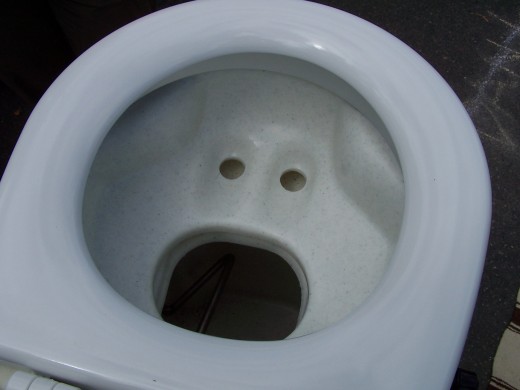The Writer's Mailbag: Installment 222
Childhood and Old Age Merge
I know, a weird subheading for the Mailbag, but I was thinking about it this morning. As I grow older, I seem to be in-tune with the wonders of life, much more so than I was in my twenties, thirties, forties, well, you know. I’ll see a spider’s web, sun shining on it from behind, and I’ll stop what I’m doing to share in the wonder of it all. I’ll spend time watching squirrels as they scamper about getting ready for winter. It is a pure pleasure to gently stroke a horse’s mane, or to simply lay down under a deciduous tree and imagine I can actually see the leaves changing colors before my eyes.
The wonder of it all, something like a small child must see, the first time, in awe of the mysteries of life, absolutely blown away by it all, every trip outside, on shaky legs, without the support of mother, taking it all in, absorbing it, becoming one with the majesty of it all . . . so very cool!
So I’m going to finish writing this Mailbag and then go out to the farm and take it all in again because, well, you just never know, ya know?

Grammar Question
From Mary: “I have a very basic grammar question for you that I just can't seem to get a grasp of. I use the word 'which' when I should use the word 'that'. When I update my articles, I noticed I do this often. Can you refresh this tired old mind of mine?”
Okay, Mary, here’s an easy way to remember this grammar rule. It may not be all-encompassing, but it will handle most times when you are confused about “that” and “which.”
Here's an easy way to remember the difference between that and which: If removing the words that follow would change the meaning of the sentence, use "that." Otherwise, "which" is fine. Some people will argue that the rules are more complex and flexible than this, but I like to make things as simple as possible, so I say that you use that before a restrictive clause and which before everything else.
Example . .. dogs that bark frighten me . . . . . . . . . . and . . .dogs, which have very unique personalities, are a joy for me.
I think that’s reasonably clear, isn’t it?
Minimizing Words Used
From Ann: “I'm giving myself an exercise (in an article) as to how to edit, to get words down to a minimum in a given text. How would you tackle that, after your first draft?”
Well shoot, Ann, why don’t you ask something a little bit simpler?
I’m going to give you a few tips that will help. These tips are certainly not all-encompassing, but they will get you started. I am going to add a qualifier, however, in stating that there are times, in creative writing, when wordiness works. It has to do, as you know, with flow and mood and voice, so not all useless words are useless, if you get my point.
Having said that, here’s what I would begin with:
How can unnecessary words or phrases be eliminated? My friend at “Total Grammar” offers these suggestions:
- Revise redundant phrases, synonymous terms, and unnecessary word pairs.
- Quickly speeding (speeding implies quickness)
- Young teenage mothers (young and teenage are synonyms)
- Financial cost (financial and cost both imply money)
- Revise redundant terms in order to be more efficient.
- Redundant: Young adults should self-assess their situation before making a big, life-changing decision.
- Revised: Young adults should assess their situation before making a major decision.
- Remove redundant adjectives and adverbs; use only those that contribute to the intended message.
- Overuse of adjectives: The large, angry, noisy crowd stormed the Capital building.
- Revised: The mob stormed the Capital building.
- Overuse of adverbs: She carefully and quietly walked through the room.
- Revised: She crept through the room.
- Remove redundant modifiers; overuse clutters the writing and distracts the reader.
- Overuse of modifiers: The business capitalists, who focus on domestic interests, only really invest in American groups.
- Revised: The business capitalists rarely invest in international groups.
I hope that helps, Ann!

Bestsellers Designation
From Mr. Happy: “Ohh, I remembered my question from the other week. I was in a subway, once again and I saw an advertising for some mystery/suspense type of novel and the advertising said in big letters: "Bestseller". I was wondering how do these ten dollar novels sold at gas-stations make the "Bestseller" list? Or, can anyone put "Bestseller" on their cover? For me, these are the types of books I would probably use at the cottage to start the fire (page by page), if someone else bought them and left them there.”
Although you had me laughing, Happy, it is a valid question, one I’ve asked myself from time to time. It was actually pretty interesting, doing the research on this one, so here’s what I found out.
There are quite a few “bestseller” lists, and most of them use different criteria in the compilation. The New York Times Bestseller list is the most famous, but it is also very flawed. First of all, it is not based on actual sales, but rather upon expected sales. Publishers are asked by the NY Times for a list of books which are expected to do well. That’s a big difference from actually doing well. The other problem with the NY Times list is it does not count digital sales. Since digital sales make up approximately 40% of all book sales, that seems like a rather sizeable omission, don’t you think?
The USA Today list does count digital sales but it, too, is limited in scope and does not count sales at independent book stores.
What’s the bottom line? Having “bestseller” on the cover of your book is great for sales, but let the buyer beware.
Great question, my friend!
Hiding Behind the Written Word
From Eric: “The other day you said you would rather not be out meeting and greeting people. That you are shy to an extent. Quite bluntly and perhaps rudely I ask; Do you hide behind the written word?”
How dare you accuse me of hiding, Eric!!!!! LOL
YES!
Is that what you wanted from me, buddy?
Seriously I think most writers, to a certain degree, hide behind the written word. Maybe “hide” isn’t the word I would use, but I understand what you are saying. There is no doubt I am much more loquacious when writing than I am in person. Without a doubt I am freer, and more willing, to share my thoughts about certain topics through writing. Is that hiding? Maybe . . . maybe not . . . but I think the spirit of your question is accurate.
Having said that, there have been times when I’ve written about certain topics, like my alcoholism, which in no way can be considered hiding. Just admitting to thousands of people on HP, and probably millions of people on the web, that I am a recovering alcoholic . . . that’s one weird way to hide! I would have to be a masochist if I considered a revelation like that to be hiding.
So I get what you are saying, but . . .

Now Back to Nature
I write this on Friday, and Friday is always a short writing day for me, so I’m going to shut down the computer and go out to the farm. There are a number of chores I need to finish before the fall rains begin and besides, I just want to sit in wonder some more, with my dog by my side, and be a little kid again.
Maybe someday you’ll be in my area and you can join me.
2018 William D. Holland (aka billybuc)
“Helping writers to spread their wings and fly.”








